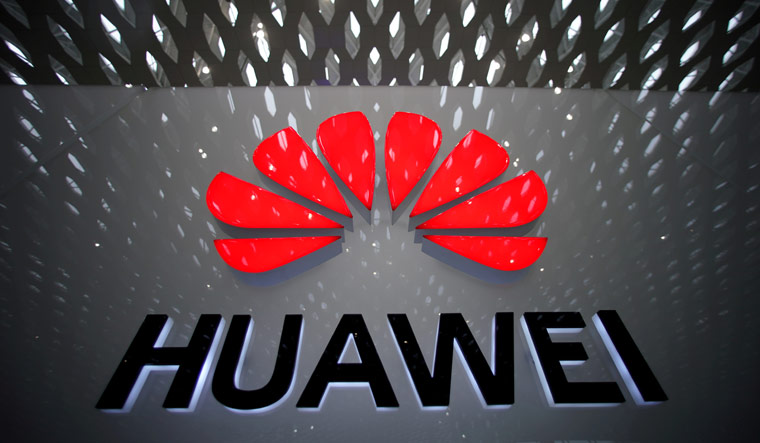China's telecommunications giant Huawei on Tuesday thanked the Indian government for permitting the company to take part in the upcoming trials for 5G networks, saying it is committed to India and firmly believes that only technology innovations and high quality networks will be the key to rejuvenating the country's telecom industry.
Telecom Minister Ravi Shankar Prasad on Monday said the government will allocate airwaves to all telecom service providers for conducting trials of super-fast speed 5G networks.
Huawei rivals western equipment makers, such as Ericsson, and is banned in the US. Many countries, however, have allowed telecom service providers to use Chinese gears. And now, India has also indicated its unwillingness to keep any company out of 5G trials.
The Indian government's decision came as a major boost to the Shenzhen-based company, the world's leader in telecom equipment and the number two smartphone producer, amid a heavy clampdown on it by the US.
"Huawei has been notified by the Indian government of permission to take part in the 5G trials," Cyril Xu, Senior Manager, International Media Affairs, said.
"We thank the Indian government for their continued faith in Huawei. We firmly believe that only technology innovations and high quality networks will be the key to rejuvenating the Indian telecom industry. We have our full confidence in the Modi government to drive 5G in India," he said.
We have our full confidence in the Indian Government and industry to partner with best technology for India's own long term benefit and also for cross industry development. Huawei is always committed to India," he said.
Huawei's participation in the 5G trials in India, which is the next biggest telecom market after China, has been one of the key topics in the India-China talks at various levels.
The 5G trials are widely-expected to begin in the last quarter of the current financial year. In September this year, Huawei had said it was hopeful that the Indian government will treat all foreign investments "fairly" and had urged the world's largest democracy to make an "independent decision" on permitting 5G trials in the country.
At that time, the Chinese firm had also sought to assure the Indian government that the company is fully compliant with regulations in India, and of addressing concerns around cybersecurity.
Earlier this year, the US had banned Huawei over concerns of security and Washington had been pressuring other countries to restrict the operations of the Chinese telecom firm.
Significantly, India's decision to permit Huawei came after the recent 22nd round of Special Representatives talks on the border issue between National Security Advisor Ajit Doval and Chinese Foreign Minister Wang Yi in New Delhi.
India had been maintaining that it would take a decision in the best interest of the country.
The 5G is the next generation cellular technology with download speeds stated to be 10 to 100 times faster than current 4G networks. The 5G networking standard is seen as critical because it can support the next generation of mobile devices in addition to new applications like driverless cars and gadgets made out of artificial intelligence (AI).
South Korea, the US and the UK have all rolled out their next generation 5G networks this year.
Earlier India has allowed Huawei which is trying to take a big lead in the 5G technology to take part in the 5G case demos in the India Mobile Congress held in October this year along with other international networks.
China has been asking India to take independent and objective decision to permit Huawei 5G services in the backdrop of the US calling on its friends and allies not to permit the top Chinese telecom firm, highlighting security issues.
Huawei has big operations in India including an R & D centre in Bangalore. It is also a major supplier of 4G technology for Indian telecom firms.
Concerns over Huawei's operations abroad has risen after China passed a new security law which requires Chinese companies to provide necessary support, assistance and cooperation with national intelligence work, if called upon.
China also protested to the US over Washington's efforts to extradite Huawei's CFO Meng Wanzhou, who has been arrested in Canada to face prosecution under domestic American law for violations of US sanctions against Iran.
Also, Huawei said on Tuesday that its annual revenue for 2019 is forecast to exceed 850 billion yuan (USD 122 billion), marking a year-on-year growth of 18 per cent despite the US government's "crackdown" on it.
Xu Zhijun, rotating chairman of Huawei, said in a public letter that though the revenue growth did not meet the target Huawei set at the early of 2019, it reflected that "the company has managed to maintain a relatively stable operation amid the US government's crackdown, and Huawei has basically withstood the test."
Xu said the company has shipped more than 240 million units of smartphones in 2019, also keeping a steady momentum. He did not disclose the profit figures.
In 2020, we will continue to remain on the US Entity List. We won't grow as rapidly as we did in the first half of 2019, growth that continued throughout the year owing to sheer momentum in the market. It's going to be a difficult year for us. We will have nothing to rely on but the hard work of our people, as well as the ongoing trust and support of our customers and partners, he said.



